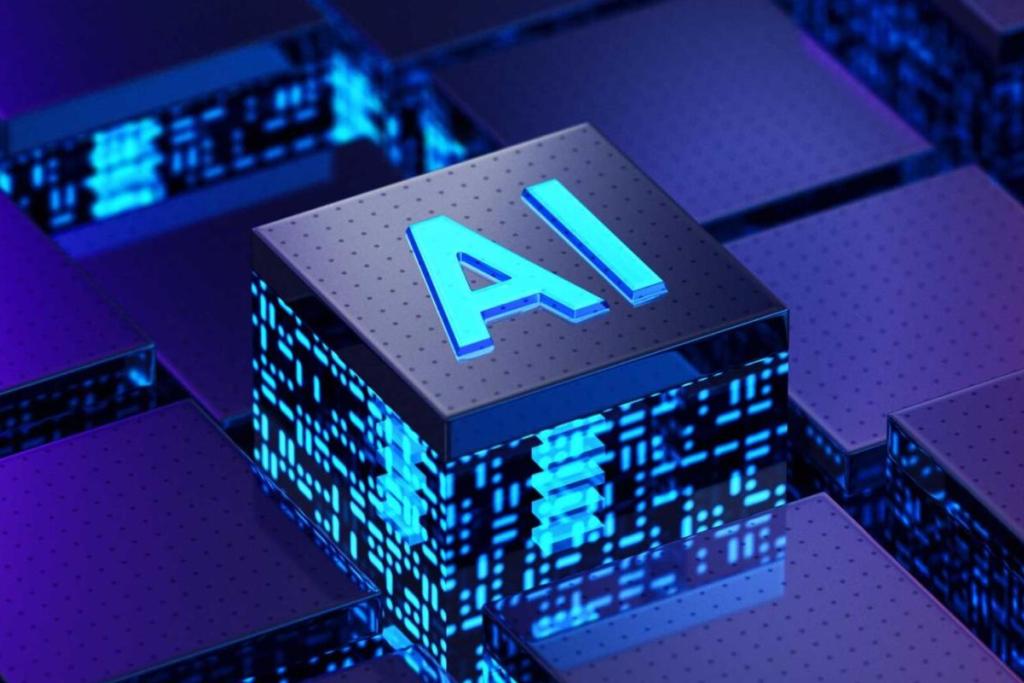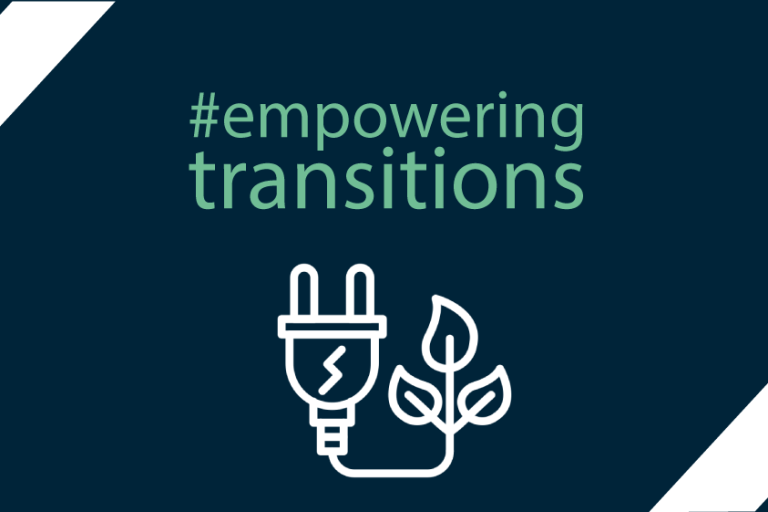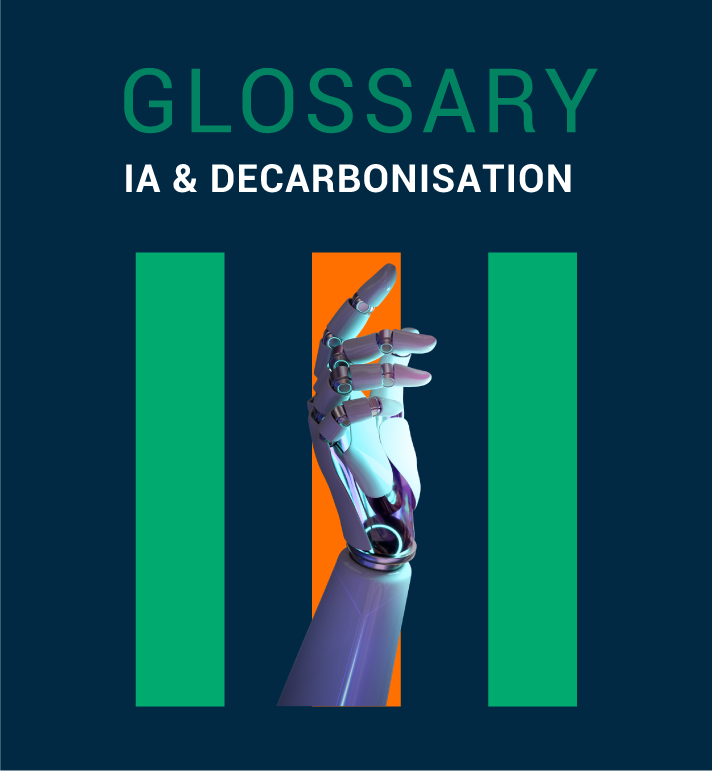How Artificial Intelligence (AI) is driving decarbonisation
To keep the temperate of the planet below 1.5°C, countries representing over 70% of the global economy have pledged to achieve zero net emissions by 2050.
The exact steps for achieving this goal still need to be determined, however, digital technology will undoubtedly play a critical role.
According to recent research from Digital Europe (1), digital technologies have the potential to reduce global CO2 emissions by 20% by 2030. On a practical level, they can help businesses identify the most cost-effective and impactful way to decarbonise their operations.

What is AI Technology?
As a branch of computer science, AI refers to a machine’s ability to perform functions that are normally associated with human minds.
A recent report from McKinsey (2) reveals that AI-driven technologies can help business reduce their CO2 emissions by up to 10% and cut energy costs by 10-20%. It also has the potential to deliver energy savings of up to 20% in buildings, and 15% in transportation systems.
At Equans, our Digital brand uses AI in combination with data science to support companies in their decarbonisation journey. We’ve seen first-hand how AI can intervene at all stages of the energy and data chain.
What is decarbonisation?
Decarbonisation refers to the process of reducing or eliminating carbon dioxide (CO2) emissions from various sources, including industrial operations, transportation, and energy production.
It involves transitioning away from fossil fuel usage and towards clean, renewable energy sources like solar, wind, hydroelectric, and geothermal power, which have a much lower carbon footprint.
Transitioning to alternative fuels and cleaner energy sources not only helps combat climate change by reducing greenhouse gas emissions, but also contributes to energy security and sustainability.
The compatibility of AI and the climate
Despite concerns about the impact of AI on jobs and the potential for it to be misused, the technology is also seen as a powerful tool in being able to combat climate change.
With AI being an emerging technology, and with our complex ecosystems, it’s difficult to accurately quantify the impact AI will have in reducing carbon emissions. However, as more sensors are distributed globally, and as machine learning continues to advance, we will learn more about how the technology can be used effectively to reduce the temperature of the planet.
According to BCG’s 2022 Climate AI Survey (3), 87% of CEOs with decision-making power in AI and climate believe that the technology is an essential tool reversing climate change.
AI has the potential to predict extreme weather conditions and to provide decision-support tools to help us identify and implement the most effective responses. It can also help identify various climate risk factors and help us develop practical applications to mitigate them.

“ Using artificial intelligence, we can gradually understand the thermal inertia of a building. ”
Building energy management
AI has the ability to analyse large volumes of data from Heating Ventilation, and Air Conditioning (HVAC) systems as well as energy management systems.
By leveraging machine learning, AI algorithms can automatically optimise energy generation, distribution, and consumption across buildings as demand requires. This can lead to more efficient use of energy resources and reduced carbon emissions.
For example, using AI, Equans helped its client Opéra National de Lyon to gain better control over its energy performance. Using our predictive AI software, we helped the venue improve the reliability of its energy performance. By being proactive in monitoring its energy use, we helped the facility avoid consumption drifts.
Transportation optimisation
The transport sector is one of the largest contributors to climate change and is responsible for approximately 25% of greenhouse gas emissions (4). AI can help decarbonise the sector by analysing traffic data and fuel consumption. In turn, this can enable more accurate route planning, traffic management, and fleet optimisation.
For example, Google’s AI-focused DeepMind project has been able to reduce fuel consumption in vehicles by 15%(5) while decreasing commuting times by analysing traffic data from sensors.
AI is also essential in the development of autonomous vehicles, which have the potential to reduce greenhouse gas emissions by up to 34%(6) by 2050. Tesla's Autopilot system (7), for example, uses AI to analyse real-time data from sensors that then helps the company optimise their vehicle's routes, speed, and battery usage.
At Equans, we used predictive AI to help Angers Loire Métropole calculate the probability of parking spaces in different zones across the city of Angers. By keeping track of exogenous data, we were able to predict parking demand and usage, improving parking efficiency in the city by 75%.
Predictive maintenance
In industries that rely on machinery, AI can be used to predict equipment failures and maintenance needs. By identifying potential issues before they occur, companies can better plan maintenance schedules, which can reduce downtime and improve energy efficiency.
According to software company PTC, AI-driven predictive maintenance (8) can reduce unplanned downtime by 30%, make fixes 83% faster, and reduce the time engineers spend on site by 75%.
By continuously analysing the condition of equipment in real-time, AI can gather various data types to determine how machines are being used and when. It can then make accurate maintenance recommendations and predict when components will need replaced or serviced.
Supply chain management
The use of AI is growing at a rapid pace in supply chain management. According to research published by SupplyChainBrain (9), AI will be worth $17.5 billion in the global supply chain management (SCM) software market by 2028. It’s already being used to optimise transportation routes, reduce packaging waste and minimise inventory levels.
By analysing inventory data, AI-enabled tools can pinpoint exactly where everything is across an entire supply chain. In turn, this enables companies to optimise their inventory levels to better meet supply and demand and reduce wastage.
In warehouses, AI can be used to analyse traffic patterns and monitor product movement, which can lead to more efficient use of space and energy.
At Equans, our innovative lab in Montargis, launched machines that directly create packaging according to product size which saves 30% space when transporting parcels and goods.
Smart grid management
With AI, fuel suppliers can more accurately monitor the flow of electricity in real time. In turn, this allows them to better manage demand side response, which supports the development of a low-carbon energy market.
By integrating renewable energy sources and energy storage systems, AI can also help maximise the use of renewable energy in the power generation mix and minimise reliance on fossil fuels.
With its self-learning capabilities, AI can help address the intermittent nature of renewable energy sources. It can help predict when stored energy from chemical, kinetic, or thermal devices should be released in order to reduce imbalances between production and consumption loads.
In summary
As an emerging technology, AI is still in its infancy. However, there are several use cases that demonstrate its effectiveness in helping companies decarbonise to achieve their Net Zero goals.
When combined with a robust decarbonisation strategy that includes the use of renewable energy and sustainable business practices, AI will undeniably become an essential technology in helping companies reduce their carbon emissions.
Artificial Intelligence (AI) – A branch of computer science that refers to a machine’s ability to perform functions that are normally associated with human minds.
Decarbonisation – The measures used by governments and organisations to reduce the amount of carbon they produce, primarily in reference to greenhouse gas emissions, carbon dioxide (CO2), and methane (CH4).
Net Zero – The target of completely removing human-made greenhouse gases from the earth’s atmosphere.
Machine Learning – The use of computer systems that can learn and adapt without explicit instruction, using algorithms and statistical models created from patterns in data.
Ecosystem - A geographic area where plants, animals, organisms, weather and landscape work together to form a specific environment.
Autonomous vehicle - A vehicle that is capable of sensing its environment and operating without human involvement.
Demand side response – The balancing of the supply and demand for electricity where consumers are encouraged to use electricity when demand is lower.
Renewable energy - Energy that is derived from natural sources such as sunlight, wind, the movement of water, and geothermal heat.
Power generation mix - The combination of the various fuels used to generate electricity across a geographic area.
(1) https://www.digitaleurope.org/resources/digital-contribution-to-delivering-long-term-climate-goals/
(3) https://www.bcg.com/publications/2022/how-ai-can-help-climate-change
(4) https://www.un.org/sites/un2.un.org/files/media_gstc/FACT_SHEET_Climate_Change.pdf
(5) https://www.deepmind.com/blog/deepmind-ai-reduces-google-data-centre-cooling-bill-by-40
(6) https://www.sciencedirect.com/science/article/abs/pii/S136192092200298X
(7) https://www.tesla.com/autopilot
(8) https://www.ptc.com/en/blogs/iiot/what-is-ai-in-predictive-maintenance
(9) https://www.supplychainbrain.com/articles/36990-artificial-intelligence-will-be-big-in-supply-chain-management-report-predicts

